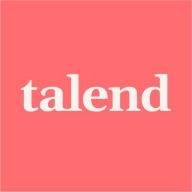

Talend Data Quality and Informatica Intelligent Data Management Cloud (IDMC) compete in data management and quality assurance. Talend appeals to budget-conscious organizations through its pricing and support, while Informatica IDMC is recognized for its superior features and investment worth.
Features: Talend Data Quality is known for its robust cleansing and profiling tools, seamless integration with various data sources, and strong data profiling capabilities. Informatica IDMC provides comprehensive data management, excelling in automation, metadata management, and handling complex data scenarios.
Room for Improvement: Talend Data Quality could enhance its scalability and expand its advanced features. It may also benefit from improved performance in handling massive data sets. Informatica IDMC could simplify its deployment process and reduce the complexity of its features for casual users. Additionally, improving its cost structure may make it more accessible to smaller enterprises.
Ease of Deployment and Customer Service: Talend Data Quality offers a straightforward deployment model with comprehensive support, but its scalability is limited. Informatica IDMC offers a scalable cloud-based deployment backed by extensive customer support, accommodating a broader range of enterprise needs.
Pricing and ROI: Talend Data Quality generally presents a lower setup cost, making it attractive for companies with budget constraints aiming for quicker ROI. Informatica IDMC involves higher initial investments but can offer substantial long-term benefits due to its advanced features and scalability.
| Product | Market Share (%) |
|---|---|
| Informatica Intelligent Data Management Cloud (IDMC) | 10.8% |
| Talend Data Quality | 4.9% |
| Other | 84.3% |


| Company Size | Count |
|---|---|
| Small Business | 42 |
| Midsize Enterprise | 24 |
| Large Enterprise | 134 |
| Company Size | Count |
|---|---|
| Small Business | 9 |
| Midsize Enterprise | 4 |
| Large Enterprise | 4 |
Informatica Intelligent Data Management Cloud (IDMC) integrates data quality, governance, and integration with flexible architecture. It supports multiple domains and a data models repository, delivering AI-enhanced data management across cloud-native platforms.
IDMC provides seamless integration and governance capabilities that support diverse data environments. Its comprehensive suite includes customizable workflows, data profiling, and metadata management. AI features, a data marketplace, and performance scalability enhance data management. While its interface poses challenges, its robust matching and cloud-native integration facilities are essential for complex data ecosystems. Users employ IDMC for connecting systems, ensuring data quality, and supporting data compliance but seek better pre-built rules, services, and improved connectivity, especially with platforms like Salesforce. Licensing, cost, and added AI functionalities are areas for potential refinement.
What are the key features of IDMC?IDMC is implemented across industries for data integration, metadata management, and governance. Organizations use it to connect systems, migrate data to cloud environments, and maintain data quality. They manage master data and automate business processes, facilitating data lineage and ensuring compliance with privacy regulations.
We monitor all Data Quality reviews to prevent fraudulent reviews and keep review quality high. We do not post reviews by company employees or direct competitors. We validate each review for authenticity via cross-reference with LinkedIn, and personal follow-up with the reviewer when necessary.